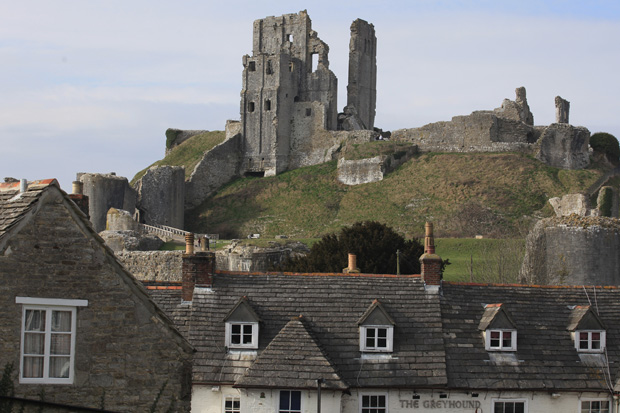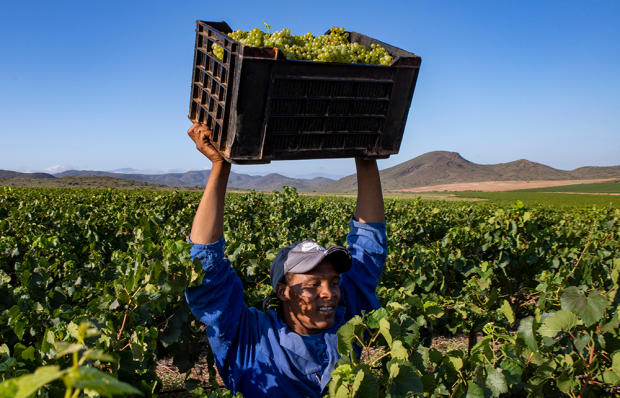Do-orzaat. Dorset is part of L’Angleterre profonde. It is possible to find evidence of modernity, but only in limited areas. Around 120 miles from London, west Dorset and the Somerset marches are around the same distance from the 21st century, let alone the 20th. It helps that no motorway runs through the county and mobile phone reception is delightfully bad. A lot of locals believe that the great proprietors have risen up and taken counsel together against the networks: thus far, successfully.
On every side, there are fine trees and calming woodland. These are not Wagner’s God-haunted woods or Tolkien’s fearsome forests. In Dorset, trees have a sweet sylvan charm, while every kitchen garden is bounteous. No wonder that, unless they have nature conservation duties in northern Britain, friends with houses here are hard to entice away in August. They point out that London is humid and overcrowded, while abroad is too hot, full of foreigners and generally bloody. Who can blame them? Dorset has its own profonde. There is a place called Chettle, as pretty as any village in England. It has a big house, also called Chettle, which was designed by Thomas Archer with help from the Bastard brothers: that is a fine Dorset name. Among the villagers, there is a family called Priddle. Everyone swears that they poshed themselves up a generation ago, by adding the ‘r’.
Although Archer has never received proper recognition, he was a great architect and Chettle is one of his masterpieces. The village is another masterpiece, of English life. When it was first described to me, I was sceptical. It sounded just like Boot Magna Hall. So it is, except more so. I wonder if Waugh ever visited Chettle?
The Bourkes, who own the village, have kept cottage rents down, partly payable in rabbits, cabbages and other produce. As a result, there is enough disposable income to ensure an almost Irish ratio of pubs to people.
Encountering the locals, you could imagine yourself meeting the reddleman on Egdon Heath. The Reverend William Barnes would be there, too, noting down the villagers’ dialect. I confess to finding it increasingly difficult to re-read Hardy and more and more inclined to agree with Chesterton: ‘the village atheist brooding and blaspheming over the village idiot’. Although the human condition is ultimately bleak, Hardy does bang on and there are palliatives. Dorset is one of them. It is a perfect place for carpe diem. Le dernier acte may be sanglante: all the more reason to enjoy the earlier ones, keeping stoicism at bay.
On that subject, the Bourkes used to let rooms to a motley of interesting characters. There was one old girl called Nicolette Barrington, who refuted any claim that sex had not been invented until 1963. ‘I had four husbands,’ she said ‘but I was never able to marry the men I loved.’
‘I’d have thought you could’ve had anyone you wanted.’
‘Oh, I had them alright: just wasn’t able to marry them.’
Some of the husbands ran to yachts and racehorses: money was also run through. But in her final act, she made herself happy in Chettle.
Money is also the Bourkes’ problem. They have never recovered from a stonking attack of death duties in the 1950s, which despoiled them of land and kit. No more servants on four meat meals a day, and the house is now for sale. Its needs are simple: love and money — a new owner who will earn the credit of posterity by shouldering today’s bills.
There is an especially perfect drink for a Dorset August; Mosel from J.J. Prüm, a superb vigneron. I have been drinking a lot of his ’11 and ’12 kabinetts, which are moreish. It takes a fine wine to enhance a Dorset summer day. Prüm can meet the challenge.
Got something to add? Join the discussion and comment below.
Get 10 issues for just $10
Subscribe to The Spectator Australia today for the next 10 magazine issues, plus full online access, for just $10.
You might disagree with half of it, but you’ll enjoy reading all of it. Try your first month for free, then just $2 a week for the remainder of your first year.















Comments
Don't miss out
Join the conversation with other Spectator Australia readers. Subscribe to leave a comment.
SUBSCRIBEAlready a subscriber? Log in